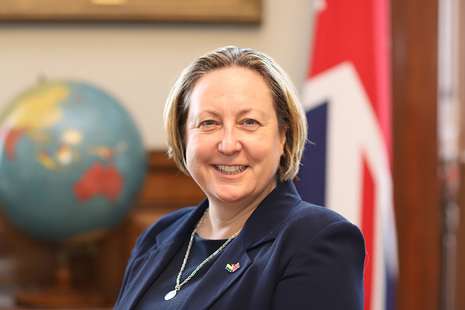Islamophobia, a term denoting prejudice against Islam and Muslims, has surged in recent years, particularly in Western nations.
While many fears surrounding Islam are baseless and stem from misinformation, there are certain ideological elements within some Islamic sects that pose legitimate concerns, particularly regarding democratic values and governance.
Misconceptions and stereotypes drive a significant portion of Islamophobia. The vast majority of Muslims worldwide practice their faith peacefully and uphold values that align with democratic principles. Islam, in its essence, advocates for justice, equality, and the protection of human rights.
Many Muslims actively contribute to the democratic societies in which they live, participating in political processes, community building, and advocating for social justice.
While broad-stroke fears about Islam are unfounded, there are specific ideological currents within certain Islamic sects that warrant concern.
One such issue is the advocacy for Sharia law as a replacement for secular democratic legal systems.
Sharia, derived from the Quran and Hadith, encompasses a range of legal and moral guidelines for Muslims. However, interpretations of Sharia can vary significantly.
In some contexts, strict interpretations include punishments and laws that are antithetical to democratic principles and human rights, such as gender inequality, restrictions on freedom of speech, and severe penalties for blasphemy and apostasy.
The idea of political Islam, or Islamism, also raises concerns. Islamism advocates for the implementation of Islamic law and governance and, in some cases, aims for the establishment of a global caliphate.
Notable examples include groups like ISIS and al-Qaeda, which have perpetrated violence in pursuit of their goals.
In his sermon delivered in Mosul in the summer of 2014, the then-leader of ISIS, Abu Bakr al-Baghdadi, said it was an obligation to establish the caliphate and therefore to recognize him as caliph.
“This is a duty upon the Muslims — a duty that has been lost for centuries … The Muslims sin by losing it, and they must always seek to establish it,” Baghdadi declared.
This vision stands in direct opposition to secular democracy, promoting a theocratic state where religious authorities wield significant power.
However, it is crucial to differentiate between the broad and diverse Muslim community and the radical fringe elements that espouse such views.
British Values Challenged by Few Muslims
In recent developments, a Foreign Office Minister claimed some Muslims in Britain “want to challenge” fundamental UK values.
Anne-Marie Trevelyan was responding to widely criticized “Islamophobic” comments made by Nigel Farage, who said on Sunday, May 26 there was a growing proportion of people in the UK who “loathe much of what we stand for.”

Farage explicitly identified Muslims when challenged on the remarks, claiming polls showed 46% of British Muslims supported the terror organization Hamas.
Asked if she agreed with him, Trevelyan said some Muslims matched that description.
“The vast proportion of British Muslims are wonderful, peace-loving, community-minded people, certainly in the north-east where I’m based, we have fantastic communities and they are a really important part of our social fabric.
“There are a very small proportion for whom they want to challenge those values that we hold dear in the UK, which are British values, and there we need to continue to work in community to bring those people to this.”
Anne-Marie Trevelyan
According to Trevelyan, the UK has incredible values of freedom of speech, and freedom of choice, among others. But those values have to be nurtured and “looked after, and where there are those who would threaten them we need to make sure that we deal with that.”
Balancing Understanding and Vigilance
The challenge lies in striking a balance between combating unfounded Islamophobia and addressing genuine threats posed by extremist ideologies.
It is crucial to foster an informed understanding of Islam, recognizing the peaceful practices of the majority while remaining vigilant against radical elements that threaten democratic values.
Educational initiatives, interfaith dialogue, and community engagement are essential in dispelling myths and fostering coexistence. Law enforcement and intelligence agencies must focus on actual threats, rather than profiling entire communities.
By doing so, societies can protect both their democratic principles and the rights of all their citizens, irrespective of their faith.




















